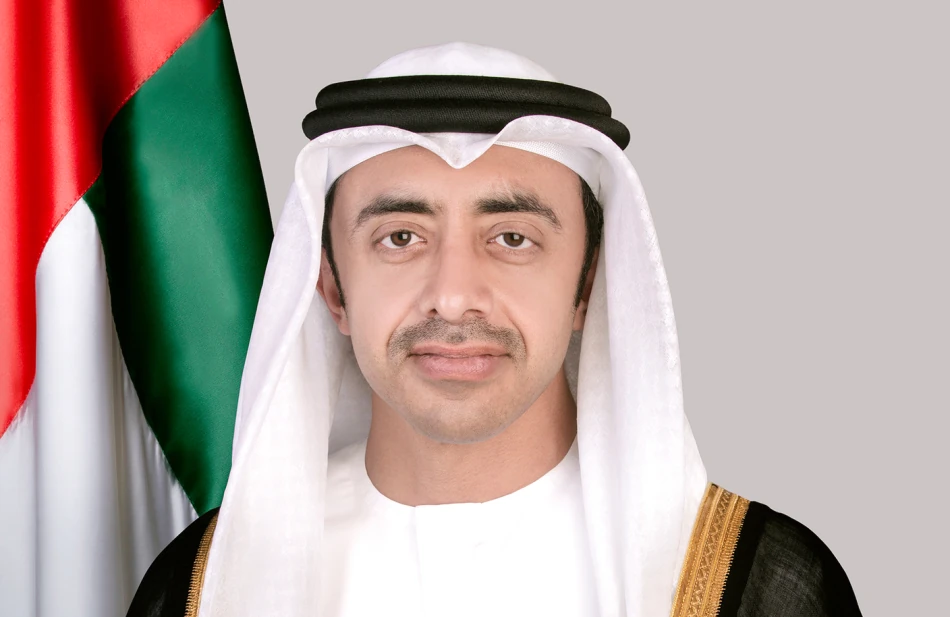
UAE's Abdullah bin Zayed Welcomes UK's Pledge to Recognize the State of Palestine
UAE Welcomes UK's Planned Recognition of Palestine as Diplomatic Momentum Builds
The United Arab Emirates has welcomed the UK's intention to recognize Palestinian statehood during September's UN General Assembly meetings, marking a significant diplomatic shift that could accelerate international momentum toward the two-state solution. The endorsement comes as regional powers increasingly view formal recognition as essential to breaking decades of political deadlock in the Israeli-Palestinian conflict.
Strategic Timing Reflects Growing International Pressure
Sheikh Abdullah bin Zayed Al Nahyan, UAE's Deputy Prime Minister and Foreign Minister, praised UK Prime Minister Keir Starmer's announcement as arriving at a "pivotal moment" requiring collective international action. This timing is particularly significant given the Labour government's recent electoral victory and its stated commitment to a more proactive Middle East policy compared to its Conservative predecessors.
The UAE's enthusiastic response reflects a broader regional calculation that formal recognition by major Western powers could create irreversible diplomatic momentum. Unlike previous recognition waves that occurred during periods of relative calm, this push comes amid heightened regional tensions, potentially giving it greater urgency and impact.
Regional Implications for Gulf Diplomacy
Balancing Act Between Normalization and Palestinian Rights
The UAE's position demonstrates the complex diplomatic balancing act Gulf states now navigate. Despite normalizing relations with Israel through the 2020 Abraham Accords, the Emirates continues positioning itself as a champion of Palestinian statehood. This dual approach allows the UAE to maintain credibility across the Arab world while preserving its strategic partnership with Israel.
Sheikh Abdullah's statement emphasized the UAE's "unwavering commitment" to Palestinian aspirations, language that signals continuity in Emirati policy despite changing regional dynamics. This consistency helps the UAE maintain its role as a regional mediator while avoiding the perception of abandoning Palestinian causes for Israeli ties.
International Recognition Cascade Effect
The UK's potential recognition would join a growing list of European nations acknowledging Palestinian statehood, including recent moves by Spain, Ireland, and Norway. This creates a cascade effect that makes it increasingly difficult for other Western allies to resist similar recognition without appearing isolated.
For international investors and regional businesses, this diplomatic shift suggests a potential stabilization of long-term political frameworks in the Middle East. Clear recognition of Palestinian statehood by major powers could reduce uncertainty around future territorial arrangements and provide clearer parameters for regional economic planning.
Implications for Regional Security Architecture
The UAE's emphasis on collective international responsibility reflects growing recognition that the Israeli-Palestinian conflict cannot be resolved through bilateral negotiations alone. This multilateral approach aligns with broader Gulf strategies that favor international frameworks over purely regional solutions to complex disputes.
The timing also coincides with broader discussions about regional security architecture, including potential Saudi-Israeli normalization and ongoing efforts to integrate various Middle Eastern conflicts into comprehensive diplomatic packages. Palestinian recognition by the UK could provide essential political cover for Arab states considering further normalization with Israel.
Economic and Strategic Calculations
From an economic perspective, resolving the Palestinian question through international recognition could unlock significant regional development opportunities. The UAE has consistently argued that political stability enables economic prosperity, and formal Palestinian statehood could reduce one of the region's primary sources of instability.
The Emirates' support also reflects its broader strategy of positioning itself as an indispensable diplomatic hub. By welcoming UK recognition while maintaining Israeli ties, the UAE reinforces its value as a bridge between different regional actors and international powers.
Most Viewed News

 Sara Khaled
Sara Khaled






